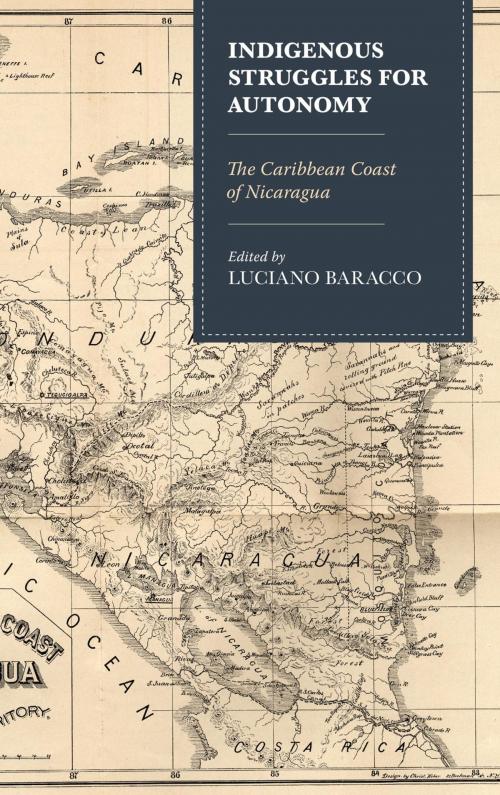Indigenous Struggles for Autonomy
The Caribbean Coast of Nicaragua
Nonfiction, History, Americas, Central America| Author: | Govand Khalid Azeez, Luciano Baracco, Arelly Barbeyto, Dolores Figueroa Romero, Jane Freeland, Alejandra Gaitán-Barrera, Miguel González, Colette Grinevald, Mark Jamieson, Joshua L. Mayer, Eric Rodrigo Meringer | ISBN: | 9781498558822 |
| Publisher: | Lexington Books | Publication: | November 29, 2018 |
| Imprint: | Lexington Books | Language: | English |
| Author: | Govand Khalid Azeez, Luciano Baracco, Arelly Barbeyto, Dolores Figueroa Romero, Jane Freeland, Alejandra Gaitán-Barrera, Miguel González, Colette Grinevald, Mark Jamieson, Joshua L. Mayer, Eric Rodrigo Meringer |
| ISBN: | 9781498558822 |
| Publisher: | Lexington Books |
| Publication: | November 29, 2018 |
| Imprint: | Lexington Books |
| Language: | English |
Indigenous Struggles for Autonomy: The Caribbean Coast of Nicaragua offers a broad and comprehensive analysis of Nicaragua’s Caribbean Coast and the process of autonomy that was initiated in 1987 as part of a wider conflict resolution process during the years of the Sandinista revolution and has continued through to the present day. Over its 30 year period of development, the autonomy process on Nicaragua’s Caribbean Coast can be seen as a crucible for the autonomous struggles of minority peoples throughout the Latin American continent. Autonomy on Nicaragua’s Caribbean Coast remains highly contested, being simultaneously characterized by progress, setbacks, and violent confrontation within a number of fields and involving a multiplicity of local, national, and global actors. This experience offers critical lessons for efforts around the world that seek to resolve long-established and deep-seated ethnic conflict by attempting to reconcile the need for development, usually fostered by national governments through neo-extractivist policies, with the protection of minority rights advocated by marginalized minorities living within nation states and, increasingly, by intergovernmental organizations such as the United Nations and the Organization of American States. This book presents analyses that reveal the broad implications for the struggle for autonomy on the Caribbean Coast of Nicaragua, conducted by scholars with expertise in an array of disciplines including sociology, globalization theory, anthropology, history, socio-linguistics, cultural and postcolonial studies, gender studies, and political science.
Indigenous Struggles for Autonomy: The Caribbean Coast of Nicaragua offers a broad and comprehensive analysis of Nicaragua’s Caribbean Coast and the process of autonomy that was initiated in 1987 as part of a wider conflict resolution process during the years of the Sandinista revolution and has continued through to the present day. Over its 30 year period of development, the autonomy process on Nicaragua’s Caribbean Coast can be seen as a crucible for the autonomous struggles of minority peoples throughout the Latin American continent. Autonomy on Nicaragua’s Caribbean Coast remains highly contested, being simultaneously characterized by progress, setbacks, and violent confrontation within a number of fields and involving a multiplicity of local, national, and global actors. This experience offers critical lessons for efforts around the world that seek to resolve long-established and deep-seated ethnic conflict by attempting to reconcile the need for development, usually fostered by national governments through neo-extractivist policies, with the protection of minority rights advocated by marginalized minorities living within nation states and, increasingly, by intergovernmental organizations such as the United Nations and the Organization of American States. This book presents analyses that reveal the broad implications for the struggle for autonomy on the Caribbean Coast of Nicaragua, conducted by scholars with expertise in an array of disciplines including sociology, globalization theory, anthropology, history, socio-linguistics, cultural and postcolonial studies, gender studies, and political science.















